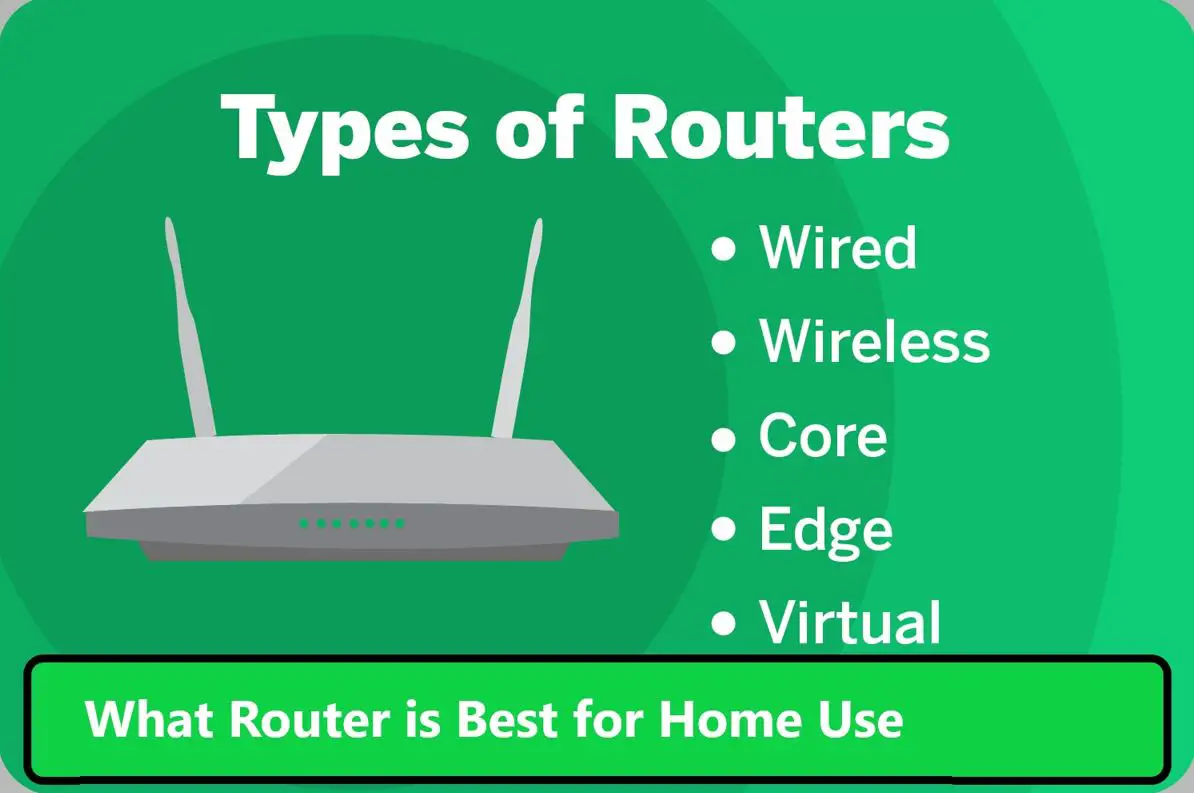Introduction
Whether you realize it or not, your router is the unsung hero that keeps your smart home together, and knowing which router is best for home use will make your experience smoother and better.
We all rely on our home networks to stay connected, entertained, and so on. A day without the internet is difficult to lead in such a data-driven world. As a result, having a good Wi-Fi router that can manage web traffic is essential.
Any user would be overjoyed to learn that routers are constantly being upgraded to better versions of themselves! 802.11ax or Wi-Fi 6 versions of the Wi-Fi standard boast faster and more efficient home network performance.
Furthermore, there is an increasing number of mesh router options that are well worth considering. The intriguing aspect is that many of these mesh routers are significantly less expensive than previous router combinations.
Before we get into the details, let’s take a quick look at what a router is.
Check Out Home Router from the link below:
What is a Router?
A router connects two or more packet-switched networks or subnetworks. Its primary functions are to manage traffic between these networks by forwarding data packets to their intended IP addresses and to allow multiple devices to use the same Internet connection.
There are various types of routers, but the majority of routers transfer data between LANs (local area networks) and WANs (wide area networks) (wide area networks). A LAN is a network of connected devices that is limited to a specific geographical area. A single router is typically required for a LAN.
A WAN, on the other hand, is a large network that spans a large geographic area. Large organizations and businesses with multiple locations across the country, for example, will require separate LANs for each location, which will then connect to form a WAN. Because a WAN is spread out over a large area, it frequently necessitates the use of multiple routers and switches.
A Wi-Fi router is simply an electronic device that sends data from an Internet cable to other devices. It also functions as a wireless access point, transmitting data via radio signals.
Your internet connection’s data stream is converted into radio signals by the router. Wi-Fi-enabled devices such as smartphones, laptops, and tablets receive these signals.
The majority of home routers are intended to provide Wi-Fi coverage within an enclosed space, such as your home, apartment, or office. A router can also be used to provide Wi-Fi coverage over a larger area.
Basic Factors that Make a Router Best for Home Usage?
Consider the following factors before purchasing a wifi router for your home.
Range
You should take at least a router for 3000 sq ft house. For bigger houses, you need more range something around 5000 sq ft range router.
Connectivity speed
This is also an important factor that you should consider. Routers advertise a wide range of top speeds, from 8Mbps to 1900Mbps and beyond. However, in most cases, the average speed of a standard consumer router will range between 100Mbps and 1,000Mbps. To maximize wireless signal strength, ensure that the router is properly positioned.
Bandwidth
The maximum capacity of a wired or wireless communications link to transmit data over a network connection in a given amount of time is indicated by network bandwidth. The number of bits, kilobits, megabits, or gigabits that can be transmitted in one second is commonly used to represent bandwidth.
Ports
This totally depends on how many devices you need to connect to your network.
Additional Factors to Consider
Your Router Should have a Multi-Core Processor and at least 128MB of RAM
The hardware inside your router is extremely important, particularly the processor and RAM capacity. You should know whether a router has a single-core, dual-core, or quad-core processor, as well as its operating frequency, before purchasing one. If you want a fast network, your next router should have a dual-core processor at the very least.
The Router that you Choose Should be Dual-Band or More
Single-band routers are no longer available. Your router should be dual-band or higher, which means it broadcasts the wireless signal on two frequencies if dual-band, or more if tri-band or higher.
Your Router Should have a Smartphone App
Having the smartphone app, preferably one that you can access from anywhere on the internet should allow you to view the router’s operational status and manage the main features when necessary.
VPN, Antivirus, Firewall, and Other Advanced Features
Buying a router with an advanced VPN server, antivirus, and other security features that can protect your wifi network from malware and outside attacks must be a very calming and worthwhile feature.
Price of a Router
Routers range in price from very cheap to extremely expensive. The type of router you buy will be determined by your needs and budget. Unless you require the best possible performance from your router, a router in the $100 to $200 range will suffice.
Smart Routers
Routers are becoming not only faster and more powerful but also smarter. A companion smartphone app now includes features that allow you to prioritize bandwidth for things like streaming movies and video games. They even update themselves on their own!
Support for Mesh Wi-Fi
Mesh Wi-Fi systems are now widely used. Mesh Wi-Fi systems are available from all router manufacturers. Some manufacturers prefer to keep things separate by selling mesh Wi-Fi systems and routers separately. On the other hand, some manufacturers prefer to include mesh capabilities in many of their routers, allowing users to use them in conjunction with other products.
Types of Router Available:
Below are 5 different types of routers mostly use:
Wireless Router
It can be found in the office, at home, or at the train station, among other places. It sends out a wireless signal. Assume you are at work; we can connect to the internet via wireless signals because your laptop is within range. We can secure routers by entering user ids and passwords. When we attempt to connect to the router, we will be prompted for a password and UserId.
The device includes a user ID and password. No information about the user is compromised due to security. When we visit public places, we can see a Wi-Fi window pop up to allow us to use the internet on our phones, and it is secure with a password. Wireless routers are widely available in the marketplace.
Wired Router
The meaning is defined by the name itself. There is a wire available to connect to the network. When we go to a bank, small college, or office, we can see a PC or Laptop connected to the internet via an Ethernet cable, which is the wired router. It has its own Wi-Fi access point. If a user wishes to connect to the phone, they can do so by using VIOP (voice-over IP technology). There is an ADSL (modem) with two jacks for ethernet and mobile phones.
Edge Router
It sits at the network’s backbone’s edge and can connect to the core routers. It can be wired or wireless, and it sends internet data packets between one or more networks. However, it will not distribute internet data packets among networks.
Core Router
It is intended for use in the internet backbone or core. It supports multiple high-speed telecommunication interfaces in the core internet. On all of them, it can forward IP packets at full speed. It is compatible with the routing protocol used in the core. It will send internet data packets throughout the network. Core, on the other hand, will not distribute internet data packets between networks.
Virtual Router
It is the standard setting for a computer-sharing network. It operates in accordance with the virtual router redundancy protocol (VRRP), and it becomes active when the main or primary router fails or is disabled. It takes several routers in a group to share a virtual IP address. Each group that handles IP packets has a master. If the master fails to forward packets, other routers will take over.
Final Thoughts:
When deciding which router is best for home use, the above are some of the most important features to consider, among many others.
The most important factors in determining what you need are your needs and your budget. Picking the right router shouldn’t be difficult these days, with so many options available from so many manufacturers.

